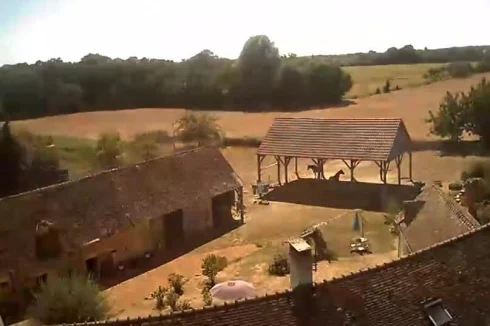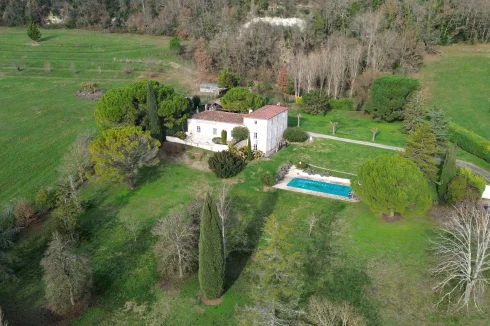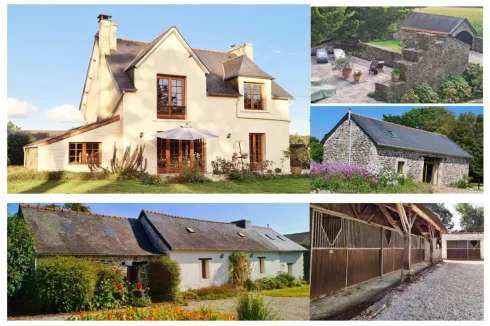Tourism in France and French Hospitality
Thursday 02 July 2015
The French government gets a reality check from its advisors that the nation needs to improve on the quality of hospitality it offers visitors.
Tourism is big business in France, accounting for 7% of GDP and 2 million jobs.
No wonder then when last month Laurence Fabius, the Minister of Foreign Affairs, held a press conference to announce a new tourism strategy he spoke of tourism as a "national treasure", albeit, in the tradition of French intellectualism, he stated it was one that contained a "paradox".
That paradox turns out to be that although the country is the biggest tourist destination in the world, with over 80 million visitors a year (12 million from the UK), it only ranks third in terms of the tourism receipts, behind the USA and Spain.
Spain, with 30% fewer tourists, generates 10% higher receipts, primarily because visitors to Spain stay for a longer period.
"Chez nous, beaucoup viennent à Paris, mais ensuite ne visitent pas nos régions ou y restent trop peu de temps", analysed the Minister.
The backdrop to the announcement was a report of the Conseil de promotion du tourisme, an advisory group established by the government to come up with a tourism blueprint and whose recommendations formed most of the content of the plan announced by the Minister.
In a hard-hitting report presented to the Minister last month, the group attributes the lack of success to the possibility that the French people do not themselves consider tourism to be a national treasure, with the result that the quality of the hospitality in France falls short of what was required.
Their own survey found the level of satisfaction expressed by visitors to France was the lowest in Europe and the USA, much of which the report attributes to "une déficit sur l’accueil humain".
With the clear inference that the country has rested too much on its laurels, the advisors stated that the outstanding national heritage the country offers to visitors was not matched by a commensurate tourism culture.
It was a problem that was more of a metropolitan phenomenon that rural, but one which was as much about the mind-set of the nation as the quality of the infrastructure.
"Tourists are not mistaken and our competitors benefit", says the report. "Here and there the idea becomes settled that the culture and the hospitality of the French were 'no longer entirely what they were', that high quality art can, after all, be produced elsewhere, and that value for money in France was poor."
That lack of hospitality also was also evident in what the report authors perceived as the decline in French cuisine.
They pointed out that for a nation whose gastronomy was a structural element of their culture there were only five French restaurants in the 'World's Best 50 Restaurants' guide.
Equally problematic were TripAdvisor and other peer-group portals, for these suggested that many visitors are dissatisfied with their French culinary experience.
A visitor survey also showed that value for money in restaurants in France was below the average of other European countries.
In the end, therefore, the working party was forced to acknowledge that, "In general...... the cuisine is rarely fresh or local, and the dishes are not savoury. The service is often slow, unfriendly, and relatively expensive for what is offered."
Their recipe for success is one with which few would disagree: "Tourists seek an interesting experience, without it necessarily being expensive. They want to focus on conviviality, authenticity, and terroir. Wine is an essential attraction."
What was needed, say the authors, was for the nation to develop a "culture of service", something which they stated does not imply servility, but rather the "opening of otherness", arguing that "no destination can be reached durably unless the population itself invests in it."
In order to bring about this cultural shift, the working party considered France needed a "grande campagne nationale de communication" to persuade visitors and the population alike that France is a friendly and welcoming country.
"These messages should be engrained for several years if they are to change our behaviour and restore the image of France", they stated.
In response to the report, the Minister was somewhat less candid than his advisors, only going as far as to as state that there was increased competition from other countries, "qui s'attachent avec raison à la qualité du service et serrent au maximum les prix est et sera de plus en plus rude," said the Minister.
Nevertheless, there was a clear appreciation that action was needed, with the Minister stating that improving the quality of hospitality in France would become "une priorité nationale."
Just how this would all come about was less tangibly expressed, and the 30 measures announced by the Minister do not look as though they match up to the task.
Nevertheless, they did include the creation of five 'poles of excellence', including one for gastronomy and wine tourism, which will aim to develop and enhance the visibility of French tourism abroad on specific themes with high potential.
Improvements in the training of tourism professionals was also to be a key priority and there would be a television campaign to popularise the importance of the quality of hospitality.
Several measures to improve the physical infrastructure were also announced, notably around Paris, with a new express train between Charles de Gaulle airport and Paris, a new dedicated taxi/bus lane to the airport, and a fixed tariff for taxis to the airport.
There is also to be improved signage and information points several languages at the main arrival points across the country as well as improvements in free Wi-Fi services at stations, ports and airports.
The process for obtaining tourist visas is to be streamlined, with a target turnaround time of 48 hours.
Laws on Sunday trading will be relaxed, although it will be interesting to see just how widespread it will be adopted.
As well as the gastronomic pole of excellence, other measures announced to combat the decline in French cuisine turned mainly on a deeper and broader celebration of French gastronomy, as well as the publication of a 'classement des classements' guide to the best French restaurants to combat what was perceived as bias in many of the existing bibles.
The report also proposes that the 'fait maison' initiative launched in 2014 to encourage restaurants to offer more dishes made from original produce should be given further impetus. The new label has yet to obtain real traction amongst most restaurant owners.
The government have promised that there will be a further plan next year.
A suivre.
Next Article: Best Village 2015
Thank you for showing an interest in our News section.
Our News section is no longer being published although our catalogue of articles remains in place.
If you found our News useful, please have a look at France Insider, our subscription based News service with in-depth analysis, or our authoritative Guides to France.
If you require advice and assistance with the purchase of French property and moving to France, then take a look at the France Insider Property Clinic.





